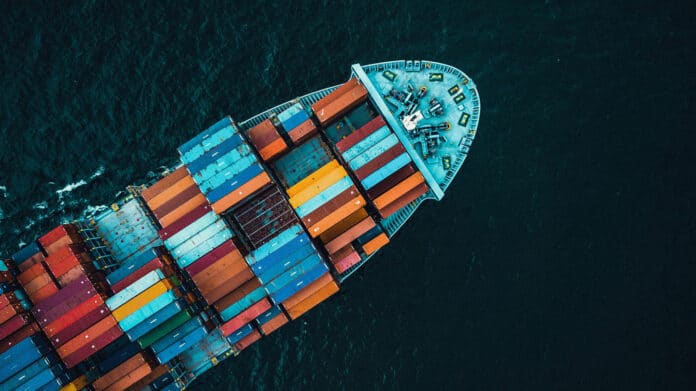The shipping industry is a crucial part of the global supply chain, but it’s also responsible for a significant amount of carbon emissions. According to recent data, shipping accounts for roughly 3% of the world’s carbon emissions.
To combat this issue, there have been significant efforts made to make the shipping process more environmentally friendly. This is an ongoing process, but progress is being made toward a greener, more sustainable future for the shipping industry.
Shipping giant Maersk has been investing more than $1 billion in ships that run on green methanol to speed up its switch to carbon-neutral operations. This week, the new container ship from the company sets sail from South Korea to Denmark, according to a report from Fast Company. It’s the first to ever run on green methanol – made from methane captured from food waste at landfills.
The company ordered the container ship two years ago as part of a commitment to the principle of only ordering newbuilt vessels that can sail on green fuels. It already has another 25 of the ships on order and is also beginning to retrofit an existing ship to a dual-fuel methanol-powered vessel and thereby able to sail on green methanol. The first engine retrofit in the industry is scheduled to be conducted by 2024.
Maersk is currently operating more than 700 vessels, with around 300 of them being owned by Maersk. To meet the ambitious 2040 target of net zero greenhouse gas emissions in time, Maersk aims to transport a minimum of 25% of Ocean cargo using green fuels by 2030.
Maersk defines “green fuels” as fuels with low to very low GHG emissions over their life cycle compared to fossil fuels. While green methanol will still generate some emissions, it can cut ship’s carbon dioxide emissions by 65-70% compared to conventional fuels.
“We have set an ambitious net-zero emissions target for 2040 across the entire business and have taken a leading role in decarbonizing logistics,” said Leonardo Sonzio, head of Fleet Management and Technology at Maersk. “Retrofitting of engines to run on methanol is an important lever in our strategy. With this initiative, we wish to pave the way for future scalable retrofit programs in the industry, accelerating the transition from fossil fuels to green fuels. Ultimately, we want to demonstrate that methanol retrofits can be a viable alternative to new buildings.”
In addition, other technologies are in development to cut emissions on ships, including ammonia, liquid hydrogen, and electrification. But because the industry is one of the major polluters and to meet the Paris climate goals as soon as possible, Maersk chose to move forward with green methanol because it was feasible.
